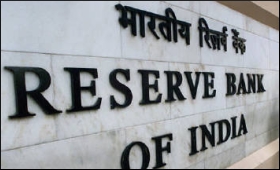|
|
|

|
Financial markets need to be prepared for sudden decline: RBI Guv
|
|

|
|
| Top Stories |
 |
|
|
|
SME Times News Bureau | 16 Jan, 2021
Reserve Bank of India Governor Shaktikanta Das has said
that domestic financial markets must remain prepared for sudden decline
going ahead in case risk aversion takes hold among investors globally.
Delivering
the Nani Palkhivala Memorial Lecture on Saturday, Das said: "While
abundant capital inflows have been largely driven by accommodative
global liquidity conditions and India's optimistic medium-term growth
outlook, domestic financial markets must remain prepared for sudden
stops and reversals, should the global risk aversion factors take hold."
The
RBI Governor's statement gains significance as the Indian stock market
has surged amid the pandemic and scaled new highs in the past one month,
raising concerns of stretched valuations.
This is the second time in a week that Das has raised concerns regarding the bullish trend in stock market.
In
his foreword to the Financial Stability report of the Reserve Bank of
India (RBI) for January, released last Monday, Das said that the
stretched valuations of financial assets pose risks to financial
stability.
In his foreword to the Financial Stability report of
the Reserve Bank of India (RBI) for January, he noted that banks and
financial intermediaries need to be cognisant of these risks and
spillovers in an interconnected financial system.
On Saturday,
noting that under uncertain global economic environment, emerging market
economies (EME) typically remain at the receiving end, he said that in
order to mitigate global spillovers, they have no recourse but to build
their own forex reserve buffers, even though at the cost of being
included in currency manipulators list or monitoring list of the US
Treasury.
"I feel that this aspect needs greater understanding on
both sides so that EMEs can actively use policy tools to overcome the
capital flow related challenges," he said.
He said that RBI is
closely monitoring both global headwinds and tailwinds while assessing
domestic macroeconomic situation and its resilience.
|
|
|
| |
|
|
|
|
|
|
|
|
|
|
|
|
|
|
| |
| Customs Exchange Rates |
| Currency |
Import |
Export |
US Dollar
|
₹91.35
|
89.65 |
UK Pound
|
₹125.3
|
₹121.3 |
Euro
|
₹108.5
|
₹104.85 |
| Japanese
Yen |
₹58.65 |
₹56.8 |
| As on 19 Feb, 2026 |
|
|
| Daily Poll |
 |
 |
| What is your primary "Make or Break" expectation from the Finance Minister this year? |
|
|
|
|
|
| Commented Stories |
 |
|
|
|
|
|
| |
|